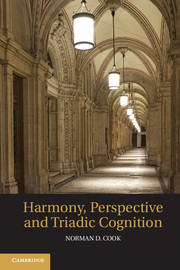8 - Conclusion
Published online by Cambridge University Press: 05 August 2012
Summary
Many questions remain unanswered concerning the importance of triadic mechanisms for understanding specifically human perception and cognition, but there is the distinct possibility that the leap from plain-vanilla, dyadic associational mechanisms to the subtleties of the human mind has a triadic basis. Such “high-mindedness” is made possible, in the first place, by (i) the expansion of the human neocortex, (ii) the unprecedented emergence of trimodal association cortex and, ultimately, (iii) the development of three-element cognitive algorithms of various kinds. The “mental trick” that we, as a species, seem to have developed (if perhaps not yet completely mastered) is how to draw inferences from juggling three simultaneous streams of information.
Clearly, the summary of the already-known forms of triadic perception and triadic cognition in these chapters will not be the final statement on the human “brain code,” but I would argue that it is the beginning – the gateway through which an understanding of the cognitive phenomena that occur beyond the reach of automatic, seemingly “mindless,” associations can be obtained. Needless to say, the dyads involved in paired (simultaneous or sequenced) associations are relevant to all aspects of neuronal information processing and are the groundwork on which triadic mechanisms are built, but it appears that all of the interesting aspects of specifically human psychology entail three-way processes – triadic perception, trimodal perception, triadic cognition and “conditional associations” – processes that cannot be coherently stated as multiple or serial dyadic associations. It is specifically the triadic processes that appear to be our forte – and difficult or entirely absent in the mental lives of animal species.
Information
- Type
- Chapter
- Information
- Harmony, Perspective, and Triadic Cognition , pp. 329 - 336Publisher: Cambridge University PressPrint publication year: 2011
